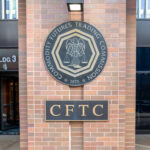Market overreacted to Kalshi’s NFL parlay launch

The stock market shock after the launch of prediction market Kalshi’s NFL parlay product may have been an overreaction, according to Sportico.
At the end of September, the launch sent shockwaves through the sports betting industry and briefly wiped billions off the market caps of DraftKings and FanDuel parent company Flutter.
Reports suggest, however, that Kalshi’s parlay business remains relatively small.
The new parlay feature saw US$6 million in trading volume during its first week, rising to US$10.1 million the next.
Between October 6 and 12, single-game parlays accounted for US$5.5 million and multi-game parlays for US$4.6 million, which was just 3.1% of the US$330.5 million traded on Kalshi’s NFL contracts that week, and only 1.1% of the platform’s total activity.
By contrast, parlays generate over 60% of sportsbook revenue and 30% of betting handle in US states such as Maryland, Illinois, and New Jersey.
However, Sportico highlighted that the market reaction is a sign of how effectively Kalshi, traditionally known for event-based prediction markets, has been encroaching on sports betting territory.
In September, its NFL contracts drew US$1.13 billion in volume, while college football added another US$811 million, making sports nearly 90% of its total activity.
The platform also recently announced that it had surpassed US$900 million in weekly volume for the second consecutive week, eclipsing its traffic from the 2024 US presidential election.
In its recent funding round, Kalshi raised US$300 million, valuing the company at US$5 billion.
Abi Bray brings strong researching skills to the forefront of all of her writing, whether it’s the newest slots, industry trends or the ever changing legislation across the U.S, Asia and Australia, she maintains a keen eye for detail and a passion for reporting.
Verticals:
Sectors:
Topics:
Dig Deeper
The Backstory
What sparked the selloff
Investors recoiled when Kalshi rolled out NFL parlays, a product that looks and feels like a sportsbook staple. That reflex made sense on the surface: in many states, parlays drive over 60% of sportsbook revenue and about 30% of handle. But early data show Kalshi’s parlay experiment is still a sliver of its own market. In the second week, single-game parlays were US$5.5 million and multi-game US$4.6 million, only 3.1% of the US$330.5 million on Kalshi’s NFL contracts and 1.1% of total platform activity. The knee-jerk reaction says more about how far the platform has pushed into sports than about immediate competitive threat.
Sports now anchor Kalshi’s volumes. The platform booked US$1.13 billion in NFL volume in September, with college football adding US$811 million. It has also twice topped US$900 million in weekly volume, eclipsing traffic seen during the 2024 presidential cycle. That momentum, plus a US$300 million fundraise that valued the company at US$5 billion, framed the market’s fear that Kalshi could siphon off the parlays that prop up sportsbook profitability. The subsequent cool-off reflects the gap between perception and current scale.
A regulatory pivot opened the lane
The backdrop to Kalshi’s sports push is a decisive legal win that widened the boundaries for event contracts. The Commodity Futures Trading Commission dropped its appeal after a federal judge in Washington ruled Kalshi could list U.S. election contracts. The agency’s voluntary dismissal followed a commission vote and ended a high-stakes test of where prediction markets fit under commodities law. Kalshi’s chief executive called it “historic.” Financial reform advocates called it dangerous. Either way, the outcome strengthened the platform’s footing and signaled a lighter near-term federal hand over event-based trading.
That legal clearance matters for sports. Although election markets and NFL contracts are distinct, the court fight clarified that federally overseen event contracts can exist alongside state-licensed betting. It also tested the CFTC’s willingness to stretch “public interest” to shut down controversial products. Markets read the dismissal as a green light for innovation on Kalshi, which helps explain why a modest parlay feature triggered an outsized reaction across listed sportsbook operators.
Leadership questions at the CFTC add uncertainty
The policy path is not set. The White House’s pick to lead the CFTC, Brian Quintez, has drawn scrutiny over his board seat and equity in Kalshi. At a June 10 Senate Agriculture Committee hearing, senators pressed him on conflicts and on how far the agency should go in blessing event contracts that look like wagering. The hearing materials, including the committee proceeding and Quintez’s testimony, show a nominee bullish on prediction markets and on the CFTC’s potential new mandate over spot crypto commodities. He pledged to divest if confirmed but acknowledged recusals may not erase concerns.
If Quintez is confirmed, the agency could tilt more receptive to event contracts, including sports-linked products. If the Senate balks, the commission’s posture could remain cautious or fragmented. For Kalshi and rivals, the leadership outcome shapes how fast they can move and how aggressively the CFTC will scrutinize future offerings that blur exchange trading with consumer betting.
States are not waiting on Washington
Even with federal tailwinds, state regulators are exerting pressure. Kalshi has sued Ohio in federal court after the Casino Control Commission issued a cease-and-desist and warned licensed sportsbooks that partnerships with Kalshi could jeopardize their state standing. Filed Oct. 7, the complaint says Ohio’s threats scared off partners and overreach into federally regulated activity. It follows a June brief by the state attorney general, joined by dozens of peers, defending authority over online betting. Massachusetts’ attorney general has also sued Kalshi for allegedly promoting and taking online sports wagers without a state license.
This conflict defines the next phase. Exchanges argue that federally cleared event contracts are distinct from state-licensed sports wagering. States counter that consumer-facing propositions tied to game outcomes are betting by another name. The outcome of Ohio’s Oct. 20 injunction bid and similar cases will determine whether Kalshi can scale sports markets nationwide or must geofence products or rework partnerships. For publicly traded sportsbooks, the state pushback blunts the risk that an exchange undercuts parlay economics in regulated markets.
League relationships and IP raise operational costs
Another friction point is content and cooperation with leagues. Kalshi and Polymarket were accused of using NFL and NFLPA branding without approval, including team logos and player images in promotions. The NFL has said it will work with prediction markets if they meet the same information-sharing and integrity standards imposed on sportsbooks. Kalshi has argued in court that such requirements can be costly. The dispute underscores a practical hurdle: to compete on mass-market sports products, platforms need data rights, brand permissions and integrity protocols that mirror sportsbooks’ compliance stack.
Absent formal partnerships, marketing and product design become legal minefields. That increases the odds that growth in sports contracts leans toward generic markets or non-branded interfaces, which limit mainstream appeal. It also raises the strategic value of alliances with leagues or data providers, which favor incumbents with existing deals.
Global ambitions meet hard borders
Kalshi’s international plan amplifies both the opportunity and the risk. The company has flagged China and India among up to 140 target countries, despite strict rules on gambling and foreign digital services. China maintains tight internet controls and allows only state lotteries. India’s new framework effectively bans most online betting, prompting job cuts and product pullbacks from major fantasy operators. Probo halted real-money prediction markets. Sportico reports users in India still cannot open Kalshi accounts, suggesting limited traction under current law.
For investors, the message is that Kalshi’s core growth drivers remain domestic and regulatory. The most realistic path runs through U.S. policy clarity, state-by-state accommodation or litigation wins, league alignment and product differentiation that avoids sportsbook licensing while capturing demand for event risk. The parlay launch, small as it is, fits that strategy. It tests consumer appetite and UI mechanics without committing to a full sportsbook model.
That is why the initial market shock looks overdone. The company’s sports book is rising fast but still far from replacing the parlay engines of DraftKings or Flutter in regulated states. The decisive variables lie with the CFTC’s leadership, state courts and leagues. As those move, so will the ceiling on how far a federally regulated prediction exchange can go in the sports economy.








